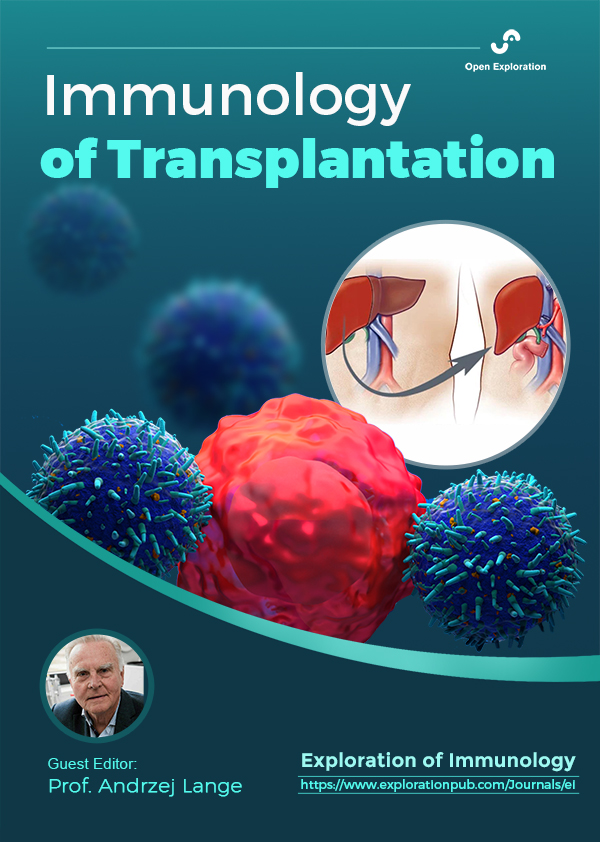
Immunology of Transplantation
Guest Editor
Prof. Andrzej Lange E-Mail
Professor, L. Hirszfeld Institute of Immunology and Experimental Therapy of the Polish Academy of Science, Wrocław, Poland; Founder of the Lower Silesian Center for Cellular Transplantation with the National Marrow Donor Registry, Wroclaw, Poland
About the Special lssue
Organ transplantation performed with success for 70 years saved the lives of millions and promoted progress in several medical specialties encouraging to increase in technical skills and research. Immunology, in particular, has played a foundational role in transplantation, providing essential insights that have facilitated the development and refinement of transplant procedures. The present issue shows recent discoveries of the interactive relationship between the organ transplanted and the recipient's homeostatic integrity. We hope to compile a volume of papers in which information flows well from paper to paper, building a more complete picture of the recent discoveries, thereby adding value to the overall issue. To do so I sincerely invite scientists to contribute to this project.
The matching was appreciated from the beginning starting from skin grafting to demonstrate tolerance. Since progress has been achieved in HLA specificities detection and in the search for HLA antibodies. STAT was shortening but still, the half time of post-transplant organ survival is not satisfactory. For that studies to induce tolerance are progressing-clinical trials are ongoing and the data on that are the most welcome.
The alloreactivity depends on mismatch level and the recipient potential of inflammatory and specific immune system response. Individual variety in the ability of the immune system to react against foreign specificities in terms of the pace and magnitude of reaction may be associated with the outcome of transplantation. The immune response differs in character being choleric or melancholic by nature with many other varieties in between. Polymorphic features of the immune system genes play a role as well as the previous infection hits which make the immunity trained to mount a heightened inflammatory response. Regulatory mechanisms tapering the immune response to maintain homeostatic integrity do not necessarily favor the actual needs of people at risk. If the switches of this mechanism are known they may be activated or blocked to reach the task, i.e. transplant survival. Cancer immunotherapy offers several examples of how it works.
Nowadays we have a battery of medicines and monoclonal antibodies that precisely target needless cells, and cell engineering may give rise to cells that prove to be useful. Cellular transplantation is highly effective in the replacement of damaged hematopoietic tissue and plays a crucial role in building anti-leukemia/tumor response.
I sketched only some fragments of the fascinating landscape depicting the role of immunology in transplantation with the hope that it will be enriched with new data presented in contributing to this volume. Papers become a valuable asset to the literature and if exploited will benefit the patients undergoing transplantation.